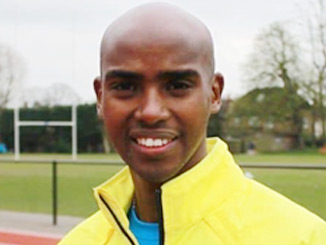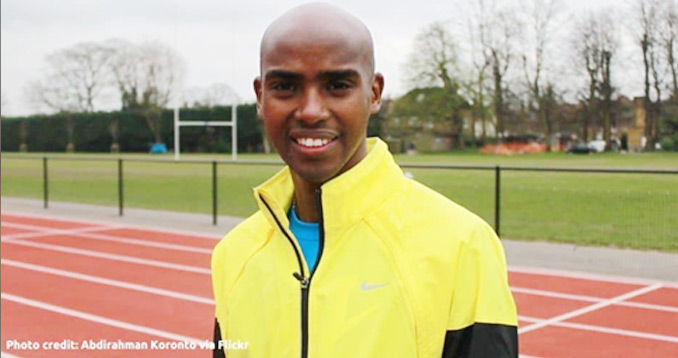

Sir Mo Farah, a renowned and award-winning British Olympic athlete revealed in a recent BBC and Red Bull Studios documentary that he was brought to the U.K. when he was nine years old and forced to work as a domestic servant.
His account of human trafficking and modern slavery has sparked an urgent conversation about how trafficking can occur, how the hostile immigration environment in the U.K. prevents people from coming forward, and the urgent need for better protection mechanisms for victims and survivors.
As a child, Farah was brought to the U.K. from his home in Somaliland by a woman he didn’t know. He was told that he was to no longer use his real name, Hussein Abdi Kahin, and was now to adopt the name of Mohammed Farah. She told him that if he ever wanted to see his family again, he would keep quiet.
From that point on, Farah’s childhood was spent in domestic servitude, cooking, cleaning and looking after the woman’s children. “For years I just kept blocking it out. But you can only block it out for so long,” the athlete reflects.
For the first few years, the family he stayed with wouldn’t allow him to go to school, but when he was about 12 years old he enrolled at Feltham Community College in West London. Staff were told that Farah was a refugee from Somalia. His former teacher, Sarah Rennie, tells the BBC that he arrived at the school “unkempt and uncared for,” spoke very little English, and was an “emotionally and culturally alienated” child.
Eventually, Farah’s sports teacher, Alan Watkinson, noticed a transformation in the youngster when he hit the athletic track. “The only language he seemed to understand was the language of [physical education] and sports,” he says.
Farah says sports was a lifesaver for him, since “the only thing I could do to get away from this [living situation] was to get out and run.” Eventually, he confided to Watkinson his true identity and background, and that he was forced to work for a family. Watkinson contacted social services, who placed Farah with another Somali family.
“I still missed my real family, but from that moment everything got better. I felt like a lot of stuff was lifted off my shoulders, and I felt like me. That’s when Mo came out – the real Mo.”
Farah began to make a name for himself as an athlete and at age 14 was invited to compete for English schools in a race in Latvia. However, he had no travel documents. Watkinson helped him apply for British citizenship, granted in July 2000, under the name Mohamed Farah.
As he gained visibility in the Somali community, a woman approached him in a London restaurant and gave him a tape. It contained a recorded message for Farah from someone he hadn’t heard from in a long time: his mother, Aisha.
His mother there tells him the origin of their journey: “We were living in a place with nothing, no livestock and the land was destroyed. We all thought we were dying. All we heard was ‘Boom, boom, boom’. I sent you away because of the war. I sent you with your uncle to Djibouti so you would have something.”
Farah says he wants to tell his story to challenge public perceptions of trafficking and slavery. “I had no idea there were so many people going through exactly the same thing I did. It just goes to show how lucky I was,” he says.

Leave a Reply